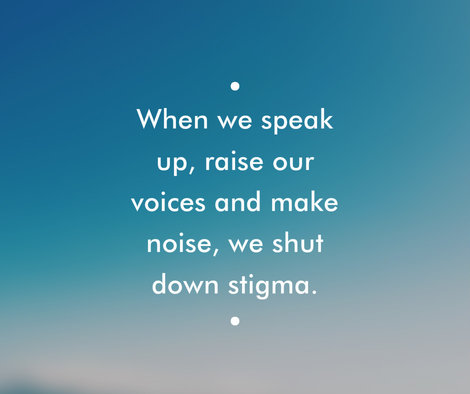When I took my first steps toward recovery, I had to accept that I was struggling with an eating disorder—and I was scared.
I was afraid if I admitted I had an eating disorder, something was inherently wrong with me—that I was somehow defective or broken. I viewed my diagnosis through a skewed lens and shamed myself for something that was out of my control. I labeled myself: I was abnormal, helpless, powerless or “messed up.”
This is the stigma I internalized. Stigma is shame, a mark of disgrace imposed by society on a person or group of people because they are different in some way. Stigma is when people say that those struggling with eating disorders are “wanting attention” or tell someone to “just eat, it’s not that hard.” Stigma is when we say someone is bulimic or someone is anorexic, when we would never say someone is cancer.
Stigma is shame, and it fueled my self-hatred. Stigma told me lies about mental illness, but through an increased awareness and knowledge, I fought back against its deception.
I learned that in reality I didn’t hate myself—I hated stigma and I hated the eating disorder…
To continue reading the rest of the story from our partner, Proud2BMe, click here.








